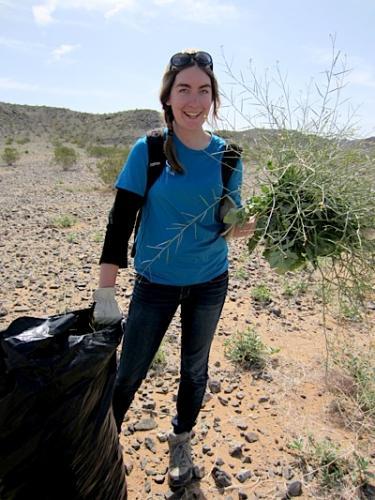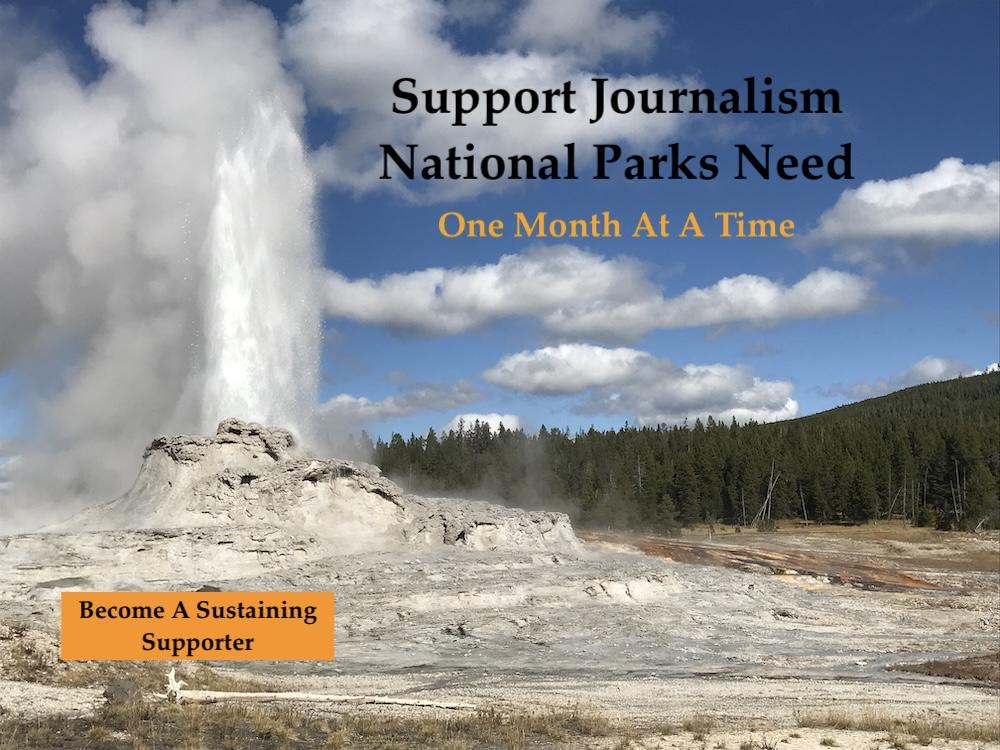Editor's note: Earlier this spring a Student Conservation Association volunteer, Oliwia Baney, wrote an essay about experiencing the natural world in national parks. That one was written the week before she headed to Joshua Tree National Park. The following was written on her return from Spring Break in the park, where she worked alongside rangers and other SCA volunteers on conservation projects.
If you visit a major city during the day, you will notice many different individuals headed to or from work, and a variety stores and restaurants. Visit that same city after dark and it will look completely different, with people dressed for the nightlife, many of the daytime businesses closed, and other venues just opening their doors. In a sense, Joshua Tree National Park is very similar, with multiple facets and personalities.
I spent my Spring Break there recently as part of a Student Conservation Association crew. Living in tents in a small, rocky canyon exposed us to the elements, and provided a taste of what local plants and animals must endure to survive. Rock climbing and scrambling introduced us to a more touristy perspective of the desert, a natural refuge from wearisome emails and meetings. Working with the park rangers offered a completely different perspective and insights into maintaining a careful, elegant equilibrium between the needs of the land and those of the individual. It was this balance that had the greatest impact on me.
I had never realized the amount of energy and people required for a desert tortoise survey, or the numerous ways invasive species can ravage a landscape, many which I wouldn’t have believed if I hadn't seen the damage firsthand in the form of choking native vegetation and entire hillsides burnt away unnaturally. As a crew, we planted over 200 native plants and pulled up many, many more exotics.
We labored long, hard days that sapped us physically, but the work often fatigued our psyches as well. For example, the sense of triumph you get from removing an invasive plant is quickly replaced by a sinking feeling when you notice the horizon is covered with hundreds more. You’re pleased to see people enjoy the park, but worry over the damage they unwittingly leave behind. To me, these are the true challenges to this kind of work, and the reason I truly admire those involved in it.
At one point, I spoke with a fellow crew mate about the invasive plants, and we confided in how disheartening it was to put in so much effort to only make a small dent in the overall problem. But as we talked, we realized how even though it was impossible to see our impact, we could project it. Every Sahara Mustard plant pulled stopped at least five potential future ones from growing, and so forth in an exponential equation. We suddenly understood that, in a sense, our actions laid a few more bricks in the path to a better future.
Situations like this remind me that stewardship is a community effort. Yes, one person’s actions may seem small, even insignificant, but in the greater picture all those individual actions add up, and this type of collaborative process is the only way we’ll be able to conserve our planet.
After experiencing these kinds of realizations and living so intimately with the land for a week, returning from the open desert to the portioned spaces of a city made for an anxiety-riddled transition. I was worried the entire week would fade into some distant, hazy dream and become foreign among L.A.’s mundane comforts and everyday busy work. But I was pleasantly surprised that even now, about a month later, the experience remains, vivid and bright.
Something one of our group leaders said about the separation between life in modern society and working in the wild on conservation projects really stuck with me. He was describing how people regularly ask him about returning to the “real world” of 9-to-5 office jobs, air conditioning, and conventional schedules, and how he found such questions frustrating because working to protect the land and its native species “is about as real as it gets.” I completely agree.
With two hands and one goal, each one of us tested our limits and made a difference for Joshua Tree National Park. Nothing could be more real.
Oliwia Baney is a second year geography major at UCLA. Her Alternative Spring Break at Joshua Tree National Park was sponsored by the Student Conservation Association and American Eagle Outfitters.


 Support Essential Coverage of Essential Places
Support Essential Coverage of Essential Places






